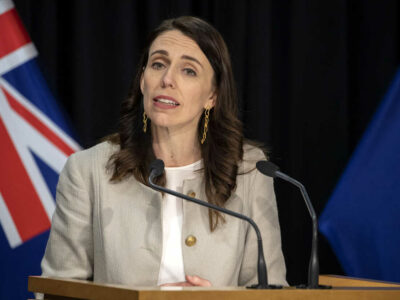
· Auckland boundary settings to change from December 15, ensuring travel out for all vaccinated people or those with a negative test result
· Country better prepared – 82 per cent New Zealanders fully vaccinated, compared to 23 per cent three months ago and projections of 90 per cent fully vaccinated by mid-December
On December 15, Aucklanders who have been vaccinated or tested will be able to reconnect with the rest of New Zealand in time for Christmas and summer, Prime Minister Jacinda Ardern announced today.
To minimise the risk of Covid-19 spreading from Auckland to other parts of the country travellers will have to be either fully vaccinated or have a negative test within 72 hours of departure. This requirement will be in place for the core summer period of December 15, 2021 to January 17, 2022.
“Aucklanders have faced restrictions for an extended period of time to keep the rest of New Zealand safe. But with increased rates of vaccination it’s time to open up the ability to travel again,” Ardern said.
“Confirming December 15 as the date the boundary requirements change provides certainty. Aucklanders can now book summer travel and accommodation with confidence and businesses inside Auckland and around the rest of the country can plan for summer travellers.
“The boundary is of course two ways, so the changes also mean Aucklanders and Auckland businesses can start receiving New Zealanders from all over the country, allowing families and friends to reconnect and business to receive a much-needed boost before Christmas.
“Police will have operational discretion on the enforcement of these rules. Police undertake random spot checks to enforce a range of laws on our roads, such as drink driving, and will take the same approach here.
“On the northern boundary, and the gateway to Northland, Police will work with Iwi to ensure people can move, but also that the people of Northland have confidence in the checks that are in place.
“We have given special consideration to the South Island. The combination of the vaccine or testing requirement for Air New Zealand combined with the ability for the inter-islander to operate the same regime will provide solid measures to slow any spread to the South.
“Cabinet will confirm on November 29 its decision to move Auckland into the new traffic light system which we expect will occur soon after the 29th. Auckland will initially move into Red, the highest level in the traffic light.
“We are also confirming today that the rest of the country will move into the framework at the same time as Auckland. Those parts of the country with lower vaccination rates will move into the new system at Red, which has greater protections than the current Alert Level 2, meaning there will be stronger measures to minimise the risk of spread.
“This decision carefully balances the need to give Aucklanders the ability to move and comfort to the rest of New Zealand that we’re still taking steps to slow the spread of Covid.
“We have deliberately set the date for the boundary restrictions to change in a month’s time in order to give the rest of New Zealand time to move into the safer traffic light system and the chance to increase vaccination rates even further.
“82 percent of New Zealanders are now fully vaccinated compared to just 23 percent when Delta arrived three months ago, so we are in a much safer position to ease boundary restrictions.
“We will be in an even safer position by mid-December when it’s expected New Zealand as a whole will be around 90 percent fully vaccinated.
“The steps we have taken to date have undeniably saved lives and slowed the spread of the virus that otherwise could have moved through the country very quickly.
“But elimination and the alert levels were never intended as a forever strategy. High vaccination rates now offer us the ability to change our approach and move into the next chapter of our Covid response,” Ardern said.


